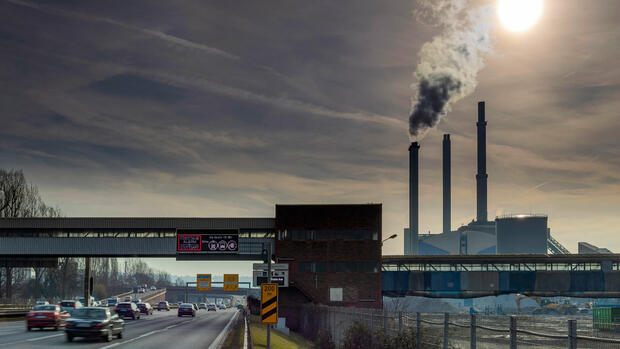All sectors will need to save significant amounts of energy to meet the targets.
(Photo: imago images/Arnulf Hettrich)
Berlin For the first time, Germany anchors the obligation to save energy across all sectors from industry to buildings in a law. By 2030, final energy consumption must fall by 26.5 percent compared to 2008, according to the draft of the Energy Efficiency Act, which the Reuters news agency claims was available on Monday.
For comparison: Between 2008 and the Corona year 2020, the savings were still less than six percent. The law has been agreed between the departments and is to be passed in the cabinet in April, possibly as early as Wednesday. “Overall, this is a quantum leap,” said Christian Noll, Managing Director of the German Business Initiative for Energy Efficiency (DENEFF) Reuters.
The federal government had been wrestling with the law for months. Chancellor Olaf Scholz (SPD) had promised the Greens a quick decision, so to speak, in return for the extension of the nuclear power plant runtimes last autumn in his word of power.
>> Read also: Study – Habeck’s plan for energy efficiency could shrink the economy
However, EU regulations, which were agreed in March, were then awaited. As a result, the draft by the Ministry of Economic Affairs was tightened to 26.5 percent from the previous 24 percent saving. The climate goals in Europe and in Germany can only be achieved with parallel energy saving.
Savings must then be made in all sectors. The biggest lever is seen in the buildings. But industry and transport also have to make significant contributions. According to the specifications, the federal government should achieve savings of 45 terawatt hours per year, and the federal states another five terawatt hours via their competencies.
By 2045, 45 percent of energy should be saved
The goals do not end in 2030, but around 39 percent are envisaged for 2040 and then 45 percent for 2045. Here, however, it only says “the federal government is aiming for”, which is a weaker formulation than for the 2030 specifications. Noll from DENEFF called this disappointing: “It’s a pity that more binding words were not found for the time beyond 2030.”
He is also critical of the special regulations for data centers, which are considered to be major energy guzzlers and which are likely to be significantly expanded in the course of the expected development of artificial intelligence (AI). New centers must use at least 10 percent and then gradually 20 percent of the waste heat. In the draft of the BMWK from the fall, there was still talk of up to 40 percent.
More: The ministry expects the new heating systems to cost nine billion euros
